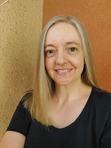Jessica Knauss's Blog, page 21
August 3, 2015
Writing Like a Spaniard
 The Castillo de Manzanares looks like a great place to write.
The Castillo de Manzanares looks like a great place to write.It was the family home of the famous author, the Marqués de Santillana. My editor (yes, I have an editor now!) tells me the Seven Noble Knights revisions are going well. There are three aspects to the revisions as I see them, but today I'd like to focus on the one I have most under control, which is use of adjectives.
I went through Seven Noble Knights some time ago to extricate unnecessary adverbs, and it appears I did a good job, because those pesky words haven't been mentioned. But I have been told to go through and get rid of adjectives that don't help. They tell me I have some lovely descriptions, so I shouldn't take all the adjectives out, but I should delete the ones that can be better expressed with a stronger verb or that are already implied in the rest of the text.
This is good advice for any writer of English. English likes to present itself as vigorous and agile, without a lot of heavy ornamentation. It views minimalist writing as a moral imperative. In general, my style is so spare that the members of my critique group ask me to add, so subtracting is new for me.
At first, I thought I was using many adjectives because Seven Noble Knights is set in medieval Spain. Specifically, the history texts in which the story survives were written during the first blossoming of Castilian prose. These writers had a lot of brand new words at their disposal (and weren't afraid to make them up if needed) and they wanted to write them all down, as if they would escape into the ether if they didn't. Bless them for that! That tendency led to an ornate descriptive style that could seem bloated to a modern reader.
Those medieval writers had a lot of influence on my writing. But then I realized that I read widely in modern Spanish and in English translations from Spanish. I don't know if I happen to select all the right books to prove this, but it seems as if the style hasn't changed much from that first burst of exuberance. Take these sentences from the first chapter of The Shadow of the Wind by Carlos Ruiz Zafón:
At last my father stopped in front of a large door of carved wood, blackened by time and humidity. Before us loomed what to my eyes seemed the carcass of a palace, a place of echoes and shadows. ... A smallish man with vulturine features framed by thick gray hair opened the door. His impenetrable aquiline gaze rested on mine. ... We followed our host through a palatial corridor and arrived at a sprawling round hall, a virtual basilica of shadows spiraling up under a high glass dome, its dimness pierced by shafts of light that stabbed from above. A labyrinth of passageways and crammed bookshelves rose from base to pinnacle like a beehive woven with tunnels, steps, platforms, and bridges that presaged an immense library of seemingly impossible geometry.
This is a high concentration of adjectives, to be sure. But I find that these sentences give me a crystal clear picture of exactly what the narrator is experiencing. I find that if I take any one of the many adjectives away, the effect is changed for the worse. The use of lots of adjectives feels useful here. It makes me question the Anglo-Saxon assumption that the immorality of a writing style is directly proportional to the number of words.
I might end up with just as clear a picture from a passage originally in English, but I would have to do more detective work to get there. English and Spanish may have completely different expectations of the reader. And so, as I revise a novel written in English about medieval Spain, I feel the pull from both literary traditions. Resolution: From that tension, greatness will arise. I will do the impossible and take out every other adjective while maintaining my "lovely" descriptions. Just wait and see.
Published on August 03, 2015 00:30
July 27, 2015
A Fleeting Flirtation with Fame
July 18 through 20, I did a giveaway of
Unpredictable Worlds
on Kindle as part of my publicity experimentation. Apparently, because I haven't set up a newsletter (yet), the best I could hope for with this is a few downloads, fewer reads, and vastly fewer new reviews.
During the free days, Unpredictable Worlds hovered around 113 in the Short Stories category most of the time. The number felt meant to be, containing as it does my husband's and my most romantic number, and I was happy with it, but if pressed, I would admit that I'd hoped to make it into the top 100 in at least one category.
After I made a Facebook plea (though I can't be sure that caused it), Unpredictable Worlds attained its highest rank on Monday at 9:44 pm: #67 in Short Stories!

And not only that, but I also happened to look at the section of the page that indicates "Customers Who Viewed This Item Also Viewed," and I couldn't be more pleased with the results. I'm beyond honored to have the slightest association with these fine books!
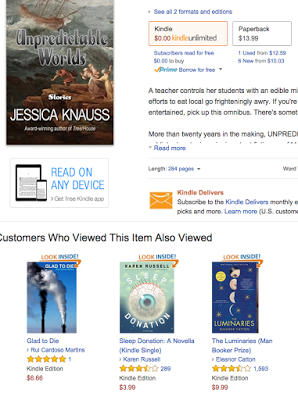
Although this giveaway didn't bring me much closer to literary stardom, I'm happy it resulted in a few more readers gaining awareness of Unpredictable Worlds . I hope they enjoy it!
Any other giveaways will be with different books, rest assured. They will be less last-minute and will involve a newsletter of some kind, because that's what the gurus are now preaching.
The big takeaway here is: thank you for your support from the bottom of my heart.
During the free days, Unpredictable Worlds hovered around 113 in the Short Stories category most of the time. The number felt meant to be, containing as it does my husband's and my most romantic number, and I was happy with it, but if pressed, I would admit that I'd hoped to make it into the top 100 in at least one category.
After I made a Facebook plea (though I can't be sure that caused it), Unpredictable Worlds attained its highest rank on Monday at 9:44 pm: #67 in Short Stories!

And not only that, but I also happened to look at the section of the page that indicates "Customers Who Viewed This Item Also Viewed," and I couldn't be more pleased with the results. I'm beyond honored to have the slightest association with these fine books!

Although this giveaway didn't bring me much closer to literary stardom, I'm happy it resulted in a few more readers gaining awareness of Unpredictable Worlds . I hope they enjoy it!
Any other giveaways will be with different books, rest assured. They will be less last-minute and will involve a newsletter of some kind, because that's what the gurus are now preaching.
The big takeaway here is: thank you for your support from the bottom of my heart.
Published on July 27, 2015 00:30
July 21, 2015
The Map of Chaos by Félix J. Palma
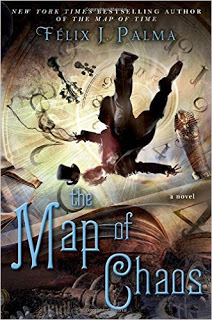 I made a vague New Year's resolution to "read more." I thought that might look like reading ten novels over the course of the year. Either I underestimated myself, or that gift card I got at work really did help, because I've already exceeded that goal. The last book I was able to buy with the gift card was
The Map of Chaos
by Félix J. Palma.
I made a vague New Year's resolution to "read more." I thought that might look like reading ten novels over the course of the year. Either I underestimated myself, or that gift card I got at work really did help, because I've already exceeded that goal. The last book I was able to buy with the gift card was
The Map of Chaos
by Félix J. Palma.This is the book I've been waiting for since I finished The Map of the Sky in 2012. When I saw that it would be available in July this year, I preordered the ebook without consideration for when it would arrive or how much it would cost. The years of yearning!
It all paid off. The Map of Chaos wraps up all the adventures from the first two books in the biggest way imaginable—by describing all the possible universes. How does all that fit into a single book? In the best way. For much of the book, it seems this final chapter will be quieter than world-destroying Martian invasion of The Map of the Sky . And then all the possible universes collide! The reader gets to feel the flash of recognition not only of characters from the previous books, but also of other personages from history. It would be difficult and pointless not to take pleasure in the overarching concept of this novel, which provides a unified theory to explain apparent time travel, ghostly visitations, and authorial inspiration.
Sound complex? It is, and I was often frustrated I hadn't purchased the print version because I wanted to page through what I'd already read in order to update my theory of what was really going on as I got more clues. But in the end, that's part of the fun, and I needn't have worried, anyway, as each element of the universe Palma has created gets its own capsule summary at the last possible important moment.
I mentioned in my review of The Map of the Sky that the characters weren't exactly prime examples of development (but that it didn't matter in the midst of so much action). As the reader witnesses the multiverse unfolding, the more meditative pace of some sections of this book allows for subtleties of character even between the different universes' "twins." Finally, The Map of Chaos is the crowning glory of an exploration of the meaning of love—true, complicated, ugly, and beautiful. Read the trilogy for the romance taken it to its furthest extreme if for no other reason. Above all, it is an ode to imagination and possibility.
The only question remaining is, when will they make the series based on this trilogy? Viewers love complicated plots and alternate history of the Victorian Age. It seems right that the BBC should produce the series, since the stories are so focused on London (in every possible universe). I'm ready, whenever they want to start. I've noticed that Eleanor & Park and Mermaids in Paradise are slated for movie versions. I'm sure it's because of my reviews ;) so let this serve as a stronger hint.
In short, there is no other trilogy like this one, which began with The Map of Time . The best books of the decade, and maybe of all possible decades.
Novels I've Read in 2015:
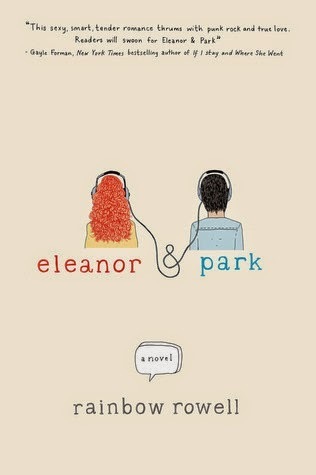 Eleanor & Park
by Rainbow Rowell
Eleanor & Park
by Rainbow Rowell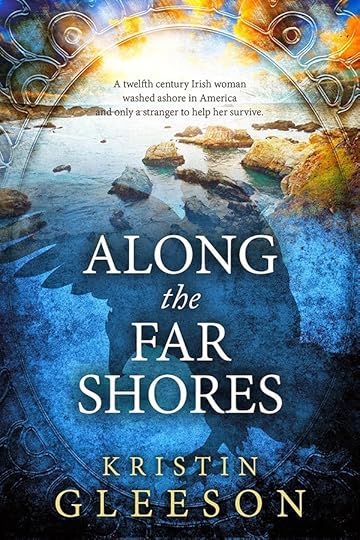 Along the Far Shores
by Kristin Gleeson
Along the Far Shores
by Kristin Gleeson Station Eleven
by Emily St. John Mandel
Station Eleven
by Emily St. John Mandel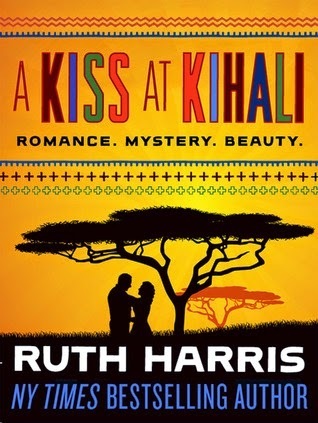 A Kiss at Kihali
by Ruth Harris
A Kiss at Kihali
by Ruth Harris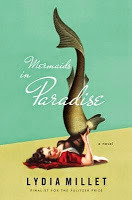 Mermaids in Paradise by Lydia Millet
Mermaids in Paradise by Lydia Millet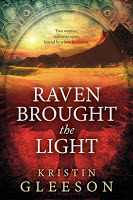 Raven Brought the Light by Kristin Gleeson
Raven Brought the Light by Kristin Gleeson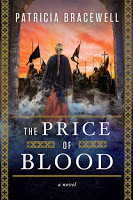 The Price of Blood
by Patricia Bracewell
The Price of Blood
by Patricia Bracewell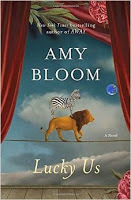 Lucky Us
by Amy Bloom
Lucky Us
by Amy Bloom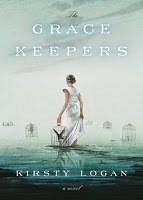 The Gracekeepers
by Kirsty Logan
The Gracekeepers
by Kirsty Logan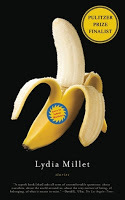 Love in Infant Monkeys
by Lydia Millet
Love in Infant Monkeys
by Lydia Millet
Published on July 21, 2015 00:30
July 18, 2015
The Most Popular Book on Pluto—FREE Here on Earth!
 NASA/APL/SwRI Even from 476,00 miles above the surface, scientists have been able to learn fascinating facts about Pluto. Foremost among these is that the best selling book there is none other than
Unpredictable Worlds
—Plutonians like their fiction unusual. They love to read about Earth's warmth, its liquid water, and its rhinos. On their icy dwarf planet, this short story collection costs eight million plutons, which is the equivalent of a median year's salary there!
NASA/APL/SwRI Even from 476,00 miles above the surface, scientists have been able to learn fascinating facts about Pluto. Foremost among these is that the best selling book there is none other than
Unpredictable Worlds
—Plutonians like their fiction unusual. They love to read about Earth's warmth, its liquid water, and its rhinos. On their icy dwarf planet, this short story collection costs eight million plutons, which is the equivalent of a median year's salary there!Here's the big news for us Terrans:
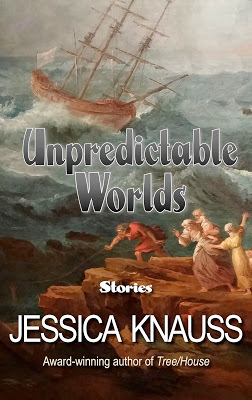 Unpredictable Worlds
, a five-star-rated fresh release, normally $3.99 on Kindle, is now FREE this weekend! Saturday, July 18 through Monday, July 20, this collection with award-winning stories can be yours at no charge.
Unpredictable Worlds
, a five-star-rated fresh release, normally $3.99 on Kindle, is now FREE this weekend! Saturday, July 18 through Monday, July 20, this collection with award-winning stories can be yours at no charge. A teacher controls her students with an edible microchip. A reporter turns into a rhinoceros. A couple’s efforts to eat local go frighteningly awry. If you’re looking to be surprised, puzzled, or just plain entertained, pick up this omnibus. There’s something for everyone!
More than twenty years in the making, Unpredictable Worlds contains all of Jessica Knauss’s published and prize-winning short fiction as of March 2015 and a few of her best stories never before seen in print or ebook. Zany plots and outrageous characters will stretch your belief and tug at your heart.
Reviewers have called Unpredictable Worlds “funny, touching, thought-provoking, anger-inducing, and faith-affirming.” You can’t regret spending $0 on this unique journey through worlds and words.
Easy links to the sale, July 18 through July 20:
US | UK | CanadaLet those Plutonians know you have good taste, too, and download Unpredictable Worlds and tell other Earthlings about it. More news about this interplanetary success soon!
Published on July 18, 2015 00:30
July 13, 2015
"To sell a lot of books, you have to give up on what you believe in."
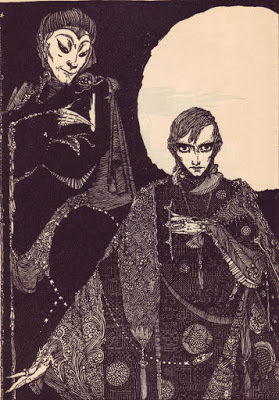 In order to sell any books, do I have to sell my soul?I've always been a dedicated writer. I mean always. Just ask my grade school teachers. But I've never sold a lot of books. My freelance editing business is picking up, so paying rent doesn't seem as daunting as it once did, but that glowing orb of idealism hangs around in the background, reminding me that what I'd really like is to get money for my writing.
In order to sell any books, do I have to sell my soul?I've always been a dedicated writer. I mean always. Just ask my grade school teachers. But I've never sold a lot of books. My freelance editing business is picking up, so paying rent doesn't seem as daunting as it once did, but that glowing orb of idealism hangs around in the background, reminding me that what I'd really like is to get money for my writing.It's such a cliché! "Every editor is a failed author." But I don't consider myself to have failed. I am, after all, an author, and people who read my work don't tell me to stop (as if I could). It's only the selling where I've fallen grievously short. One of my writing goals this month has been to dedicate serious consideration to what I could do to increase the likelihood that readers will discover my books and then proceed to buy them.
Sound hard? It's harder than you think! I'll just mention in passing, because so many others have said it already, that as soon as one method of book publicity works, every other author tries it and it becomes less and less effective. Normally, I'm not even aware of a particular method until it's run its course. So all you have to do is come up with your own totally new idea.
I've known this for a year or two, but totally new ideas don't just lie around waiting for anyone to pick them up and make millions with them. My husband knows this particular dilemma. When I told him I was hoping to come up with a doable game plan by the end of July, he responded with the title of this post.
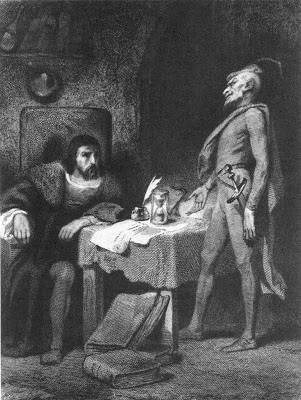 "To sell a lot of books, you have to give up on what you believe in."My husband, like me, is an irrepressible optimist, so the pronouncement was unexpected. He's come to this conclusion after years of watching two things: my anonymity, and a certain famous author doing TV ads and getting richer by the day without doing all his own writing.
"To sell a lot of books, you have to give up on what you believe in."My husband, like me, is an irrepressible optimist, so the pronouncement was unexpected. He's come to this conclusion after years of watching two things: my anonymity, and a certain famous author doing TV ads and getting richer by the day without doing all his own writing.I've never read any of that author's work, and he gives away significant chunks of his cash to literacy causes, so I've refrained from judging him in spite of how annoying those ads are. This author also has recently had a TV series made of one of his books, which does nothing to mend the antagonistic relationship humans have with other animals. From these unresearched pieces of evidence and his massive book sales, I gather that this author's writing appeals to the reading masses. Rather than challenging perceptions or cultural norms, this writing plays right into them.
It's only when thinking about commercial writing that I realize my own ideals for the author's profession. My method is to write about what I think is important or fascinating. There is no greater feeling in the world than having someone read my work, "get" it, and enjoy it! So it's not that I'm trying to alienate my potential readers. I'm looking for readers who want a challenge.
I'm a reader who seeks to experience other points of view and other worlds, which may not mesh with her own understanding, and I hope there are many other readers like me "out there." I was told at a young age that writing from my own inspiration would mean someone else would sympathize. It was good advice, but I may have taken it too literally.
Because, so far, there don't seem to be a whole lot of paying customers interested in what I have to say. Returning to the title of this post, my husband thinks the only way to sell a lot of books is to think about what people already believe and write something that confirms that belief—put my own beliefs and/or questions on a shelf and forget about challenging readers, because that's not profitable.
It's cynical, but it has a ring of truth for me. What do you think?
I'm hoping against hope that all of this is moot, that once you have some good writing, it's all about getting noticed. I mean, Suzanne Collins had something she really wanted to say, and it... well, it caught fire! This month, I'll still be working on publicity I can accomplish with my budget and personality. Fingers crossed!
Published on July 13, 2015 00:30
July 6, 2015
Love in Infant Monkeys by Lydia Millet
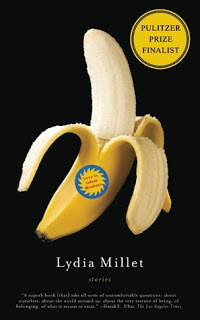 If I had known that each of these stories takes a different point of view on human relationships with animals, I would've picked up
Love in Infant Monkeys
sooner. Shocking and sensitive all at once, Lydia Millet delivers in a concentrated short story format all the impact of her novels. Each story is a memorable mixture of fact and fiction and each gives the reader something new to think about, some aspect of the way humans act in the world and how our behavior affects the other residents of this planet.
If I had known that each of these stories takes a different point of view on human relationships with animals, I would've picked up
Love in Infant Monkeys
sooner. Shocking and sensitive all at once, Lydia Millet delivers in a concentrated short story format all the impact of her novels. Each story is a memorable mixture of fact and fiction and each gives the reader something new to think about, some aspect of the way humans act in the world and how our behavior affects the other residents of this planet.I was appalled to learn that the title story was inspired by a real-life study and intrigued by the possibilities of Edison's obsession with his film of an elephant execution (which is now digitized for anyone to view). A story about a Komodo dragon who attacked Sharon Stone's husband becomes a meditation on the meaning of celebrity and the relative value of life.
My favorite story is "Girl and Giraffe." Here Millet presents a realistic version of the humans who worked with the lions in Born Free and what they think and feel about the animals they work with, and then proceeds to bear witness to some lion behavior that no human can understand. For me, the behavior isn't below human experience, but transcends human comprehension.
Love in Infant Monkeys is not for faint-hearted readers, surely, but is an exquisite book. But everyone else knew that already!
Novels I've Read in 2015:
 Eleanor & Park
by Rainbow Rowell
Eleanor & Park
by Rainbow Rowell Along the Far Shores
by Kristin Gleeson
Along the Far Shores
by Kristin Gleeson Station Eleven
by Emily St. John Mandel
Station Eleven
by Emily St. John Mandel A Kiss at Kihali
by Ruth Harris
A Kiss at Kihali
by Ruth Harris Mermaids in Paradise by Lydia Millet
Mermaids in Paradise by Lydia Millet Raven Brought the Light by Kristin Gleeson
Raven Brought the Light by Kristin Gleeson The Price of Blood
by Patricia Bracewell
The Price of Blood
by Patricia Bracewell Lucky Us
by Amy Bloom
Lucky Us
by Amy Bloom The Gracekeepers
by Kirsty Logan
The Gracekeepers
by Kirsty Logan
Published on July 06, 2015 00:30
June 29, 2015
A Third Five-Star Review of Unpredictable Worlds: Funny, Touching, Thought-Provoking, Anger-Inducing, and Faith-Affirming
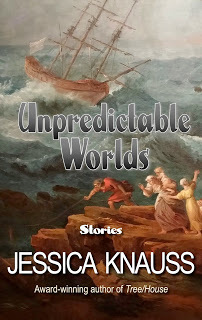 Ask and you shall receive?
Ask and you shall receive?I placed Unpredictable Worlds on NetGalley for a significant fee. (Get it free for review there!) As you can see, I've got quite a few thumbs-up on the cover there, but it really started to pay off just after I point-blank asked for a review by someone I wasn't already acquainted with.
I received a great review at The Fish Place! She says, "This collection is by turns funny, touching, thought provoking, anger inducing, and faith affirming. It’s great."
Wow! The real gobsmacker is that this reader, who has an honest review policy, also seems to get what I'm trying to do with these stories. She pays me the ultimate compliment when she singles out the rhino stories as her favorites and says I'm "the literary PR person for the species."
I'm so flattered all I can think to do is make it more true. I've been daunted lately about my rhino novel project. I hope this encouragement will help me blow past the mental block. The rhinos are certainly worth it!

Published on June 29, 2015 00:30
June 22, 2015
A Unique Collaboration: Kristin Gleeson on The Imp of Eye
The Imp of Eye
, released on June 25, was written by two amazing, talented author friends of mine. Any collaboration is special in the solitary business of writing, but today Kristin Gleeson explains how this collaboration is really a unique tribute.
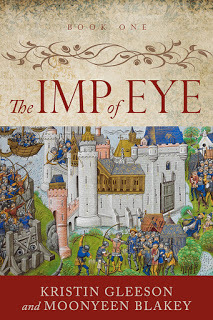 TheImp of Eye
didn’t begin its life as a collaboration. It started out as an idea my dear friend Moonyeen Blakey, a fellow author who’d published award-winning The Assassin’s Wife with Fireship Press in 2012. She had the idea after researching a previous novel on Jacquetta Woodville, King Edward IV’s mother-in-law. She had encountered a Marjory Jourdemayne, The Witch of Eye, who along with the Duchess of Gloucester and others, was accused of witchcraft. A perfect idea for a novel, she told me.
TheImp of Eye
didn’t begin its life as a collaboration. It started out as an idea my dear friend Moonyeen Blakey, a fellow author who’d published award-winning The Assassin’s Wife with Fireship Press in 2012. She had the idea after researching a previous novel on Jacquetta Woodville, King Edward IV’s mother-in-law. She had encountered a Marjory Jourdemayne, The Witch of Eye, who along with the Duchess of Gloucester and others, was accused of witchcraft. A perfect idea for a novel, she told me.
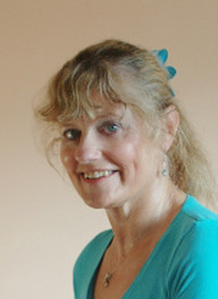 Moonyeen BlakeyThe idea grew and became a novel from the viewpoint of a young lad, Barnabas, who worked in Marjory Jourdemayne’s household. We discussed Barnabas several times and how such a viewpoint would catch attention, and his age. I made suggestions. Gradually Barnabas emerged, a little older and full of mischief:
Moonyeen BlakeyThe idea grew and became a novel from the viewpoint of a young lad, Barnabas, who worked in Marjory Jourdemayne’s household. We discussed Barnabas several times and how such a viewpoint would catch attention, and his age. I made suggestions. Gradually Barnabas emerged, a little older and full of mischief:
Mistress Jourdemayne fetches me such a cuff round the head, I almost bites me tongue in two.‘You little imp. Don’t try to cheat me again, Barnabas,’ she says, kicking the sticks I’ve collected for the fire. ‘I know what the fishmonger asks for broiled carp.’‘It was only a groat’s worth of salt herring,’ I says. I sits, muttering by the hearth, nursing a bruised knee from the stumble I’ve taken against the hearth fender.
Over the next few years the novel began to take shape and changed direction occasionally. Moon shared her progress and ideas with me and I gave my enthusiastic feedback. Unfortunately, Moon fell ill with a second bout of cancer. She’d beaten cancer almost 20 years before and this time we thought it would be no different, but we were wrong. In March 2014, Moon died passed away.
Before she died, she asked me to take over her writings, including the many drafts of her novel about Barnabas, one of which was entitled The Imp of Eye . She told me to do what I thought best with it, because she trusted me and my writing quality. She knew I would honour her spirit and try to get the story out to the public.
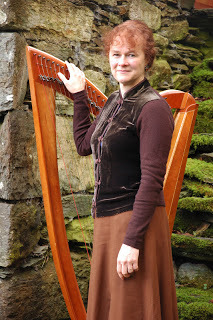 Kristin GleesonI took the novel on and read through it. Moon’s amazingly creative mind never ceased to create characters and storylines that were lively and the novel was full of them. Some of them, though, deserved a book on their own and took the focus off the main element and characters of the story: The witchcraft accusations, Barnabas, and the Duchess of Gloucester.
Kristin GleesonI took the novel on and read through it. Moon’s amazingly creative mind never ceased to create characters and storylines that were lively and the novel was full of them. Some of them, though, deserved a book on their own and took the focus off the main element and characters of the story: The witchcraft accusations, Barnabas, and the Duchess of Gloucester.
I narrowed down the storylines to those two main characters, which I felt also improved the tension and pace of the story. With those two characters I was able to increase the attention and scenes for the Duchess of Gloucester to show the splendour and intrigue at court as well as develop the relationship between the Duchess and her husband.
Barnabas’s age always troubled me, because he seemed too young at ten to handle all the challenges that were thrown at him. I also wanted to hint at a growing attention to women. This seemed important to me because I was really starting to adore Barnabas and felt he could go on beyond this book. So I made him thirteen years old at the beginning and fourteen at the end of it.
I also introduced and changed a few characters to support the increasing number of plot twists better and also give Barnabas a future in other books. For instance a jolly large blackamoor that was shades of Ali Baba’s genie became an elegant scholar from the heart of African Timbuktu. Barnabas’s friend Amice became Alys, the Duchess’ servant.
Expanded scenes in the palace meant more research for the sake of accuracy, something I take seriously as a historian. I had Moon’s research books and my own, added to my prior knowledge which helped me in painting vivid scenes. One book I had a lot of fun with was a text on medieval feasts. I knew meals could be elaborate, but I was amazed at the extent of dishes and entertainments that were provided. I couldn’t resist to used it as a plot twist in the novel.
All the time I was writing I felt as though Moon were at my shoulder, debating, discussing and directing. It was a unique experience and in the end I have to say I fell in love with the novel and its characters. The Imp of Eye , Book One in the Renaissance Sojourner Series, was born. I think Moon would approve.
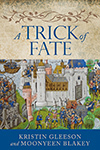 Look out for A Trick of Fate, soon to be a FREE novella ebook prequel on Amazon and other ebook venders. And if you’re up for more free books, sign up for my mailing list on my website and receive A Treasure Beyond Worth, a free novella ebook
Look out for A Trick of Fate, soon to be a FREE novella ebook prequel on Amazon and other ebook venders. And if you’re up for more free books, sign up for my mailing list on my website and receive A Treasure Beyond Worth, a free novella ebook
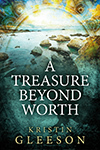
 TheImp of Eye
didn’t begin its life as a collaboration. It started out as an idea my dear friend Moonyeen Blakey, a fellow author who’d published award-winning The Assassin’s Wife with Fireship Press in 2012. She had the idea after researching a previous novel on Jacquetta Woodville, King Edward IV’s mother-in-law. She had encountered a Marjory Jourdemayne, The Witch of Eye, who along with the Duchess of Gloucester and others, was accused of witchcraft. A perfect idea for a novel, she told me.
TheImp of Eye
didn’t begin its life as a collaboration. It started out as an idea my dear friend Moonyeen Blakey, a fellow author who’d published award-winning The Assassin’s Wife with Fireship Press in 2012. She had the idea after researching a previous novel on Jacquetta Woodville, King Edward IV’s mother-in-law. She had encountered a Marjory Jourdemayne, The Witch of Eye, who along with the Duchess of Gloucester and others, was accused of witchcraft. A perfect idea for a novel, she told me. Moonyeen BlakeyThe idea grew and became a novel from the viewpoint of a young lad, Barnabas, who worked in Marjory Jourdemayne’s household. We discussed Barnabas several times and how such a viewpoint would catch attention, and his age. I made suggestions. Gradually Barnabas emerged, a little older and full of mischief:
Moonyeen BlakeyThe idea grew and became a novel from the viewpoint of a young lad, Barnabas, who worked in Marjory Jourdemayne’s household. We discussed Barnabas several times and how such a viewpoint would catch attention, and his age. I made suggestions. Gradually Barnabas emerged, a little older and full of mischief: Mistress Jourdemayne fetches me such a cuff round the head, I almost bites me tongue in two.‘You little imp. Don’t try to cheat me again, Barnabas,’ she says, kicking the sticks I’ve collected for the fire. ‘I know what the fishmonger asks for broiled carp.’‘It was only a groat’s worth of salt herring,’ I says. I sits, muttering by the hearth, nursing a bruised knee from the stumble I’ve taken against the hearth fender.
Over the next few years the novel began to take shape and changed direction occasionally. Moon shared her progress and ideas with me and I gave my enthusiastic feedback. Unfortunately, Moon fell ill with a second bout of cancer. She’d beaten cancer almost 20 years before and this time we thought it would be no different, but we were wrong. In March 2014, Moon died passed away.
Before she died, she asked me to take over her writings, including the many drafts of her novel about Barnabas, one of which was entitled The Imp of Eye . She told me to do what I thought best with it, because she trusted me and my writing quality. She knew I would honour her spirit and try to get the story out to the public.
 Kristin GleesonI took the novel on and read through it. Moon’s amazingly creative mind never ceased to create characters and storylines that were lively and the novel was full of them. Some of them, though, deserved a book on their own and took the focus off the main element and characters of the story: The witchcraft accusations, Barnabas, and the Duchess of Gloucester.
Kristin GleesonI took the novel on and read through it. Moon’s amazingly creative mind never ceased to create characters and storylines that were lively and the novel was full of them. Some of them, though, deserved a book on their own and took the focus off the main element and characters of the story: The witchcraft accusations, Barnabas, and the Duchess of Gloucester.I narrowed down the storylines to those two main characters, which I felt also improved the tension and pace of the story. With those two characters I was able to increase the attention and scenes for the Duchess of Gloucester to show the splendour and intrigue at court as well as develop the relationship between the Duchess and her husband.
Barnabas’s age always troubled me, because he seemed too young at ten to handle all the challenges that were thrown at him. I also wanted to hint at a growing attention to women. This seemed important to me because I was really starting to adore Barnabas and felt he could go on beyond this book. So I made him thirteen years old at the beginning and fourteen at the end of it.
I also introduced and changed a few characters to support the increasing number of plot twists better and also give Barnabas a future in other books. For instance a jolly large blackamoor that was shades of Ali Baba’s genie became an elegant scholar from the heart of African Timbuktu. Barnabas’s friend Amice became Alys, the Duchess’ servant.
Expanded scenes in the palace meant more research for the sake of accuracy, something I take seriously as a historian. I had Moon’s research books and my own, added to my prior knowledge which helped me in painting vivid scenes. One book I had a lot of fun with was a text on medieval feasts. I knew meals could be elaborate, but I was amazed at the extent of dishes and entertainments that were provided. I couldn’t resist to used it as a plot twist in the novel.
All the time I was writing I felt as though Moon were at my shoulder, debating, discussing and directing. It was a unique experience and in the end I have to say I fell in love with the novel and its characters. The Imp of Eye , Book One in the Renaissance Sojourner Series, was born. I think Moon would approve.
 Look out for A Trick of Fate, soon to be a FREE novella ebook prequel on Amazon and other ebook venders. And if you’re up for more free books, sign up for my mailing list on my website and receive A Treasure Beyond Worth, a free novella ebook
Look out for A Trick of Fate, soon to be a FREE novella ebook prequel on Amazon and other ebook venders. And if you’re up for more free books, sign up for my mailing list on my website and receive A Treasure Beyond Worth, a free novella ebook 
Published on June 22, 2015 00:30
June 15, 2015
The Raves are Trickling In...
 Unpredictable Worlds
has been out for a month. It's still a youngling, fresh faced to the world! It has two reviews at Amazon, both of which give me indescribable joy as an author.
Unpredictable Worlds
has been out for a month. It's still a youngling, fresh faced to the world! It has two reviews at Amazon, both of which give me indescribable joy as an author. For example, one review summarizes what the stories do:
"They explore the person's deepest interior, their secret wishes that can become worst nightmares or frustrations that lead to a downfall. In all, the world is not quite what the reader expects and through it the reader's own idea of the world and what is possible can be challenged. Fascinating."
I couldn't have described my aims as a writer better myself!
The other reviewer compares me to some of the finest storytellers of all time and then offers this gem:
"Jessica Knauss finds the deeply disturbing and scary in ordinary situations and everyday life. When she starts, all is as normal as reaching for your morning coffee, but before you're half way through, it's a whole other story—one that should make the hair on the back of your neck stand up."
I just love challenging the reader's expectations. I'm most entertained when I read unpredictable stories, so I aspire to bring that experience to my readers, too. I'm pleased beyond measure that these two readers understand.
I know both of these readers. The first is the author of many wonderful and unusual novels, Kristin Gleeson, and the second is the author of the best fantasy series of the new millennium (The Astreya Trilogy), Seymour Hamilton.
Someday, I do hope to have a review from someone I haven't already established a great relationship with. Let me know if you'd like a review copy! Unpredictable Worlds is available on NetGalley.
Published on June 15, 2015 00:30
June 8, 2015
Great Writers of New England: Henry David Thoreau

Henry David Thoreau was the first person to write about "nature" in the sense we mean it today. You might say he invented nature. At the time of his writing, civilization had just severed the last ties between nature and humanity. Before this point, nature might not have been considered separate from hunan experience. By writing about his time on Walden Pond, Thoreau presented nature for the civilized world to appreciate. He made nature preserves and national parks possible.
 Thoreau did this momentous work in a cabin near the water. A replica shows that his living arrangement was actually pretty comfortable. It has everything a writer needs. Too much more would be a distraction.
Thoreau did this momentous work in a cabin near the water. A replica shows that his living arrangement was actually pretty comfortable. It has everything a writer needs. Too much more would be a distraction. Such a beautiful place to do this kind of work!
Such a beautiful place to do this kind of work!  This is the view to Walden Pond from the actual cabin site. It's better to be a little bit away from the water to avoid bugs, which I'm sure there were still plenty of.
This is the view to Walden Pond from the actual cabin site. It's better to be a little bit away from the water to avoid bugs, which I'm sure there were still plenty of. Walden Pond is actually so big, a lot of people would consider it a lake. The area closest to the park reception is like a beach and people bring their children with water wings. There are also many places to launch kayaks or just start swimming if that's your thing.
Walden Pond is actually so big, a lot of people would consider it a lake. The area closest to the park reception is like a beach and people bring their children with water wings. There are also many places to launch kayaks or just start swimming if that's your thing. My husband and I preferred to walk around the entire pond and appreciate the beginning of spring, which came late this year. Walden Pond is still an oasis in the middle of civilization. Its beauty can really choke you up! And then the commuter rail goes by at the far end, and the conductor waves to you, and you wave back, and you remember not to take things so seriously.
My husband and I preferred to walk around the entire pond and appreciate the beginning of spring, which came late this year. Walden Pond is still an oasis in the middle of civilization. Its beauty can really choke you up! And then the commuter rail goes by at the far end, and the conductor waves to you, and you wave back, and you remember not to take things so seriously.
Published on June 08, 2015 00:30

